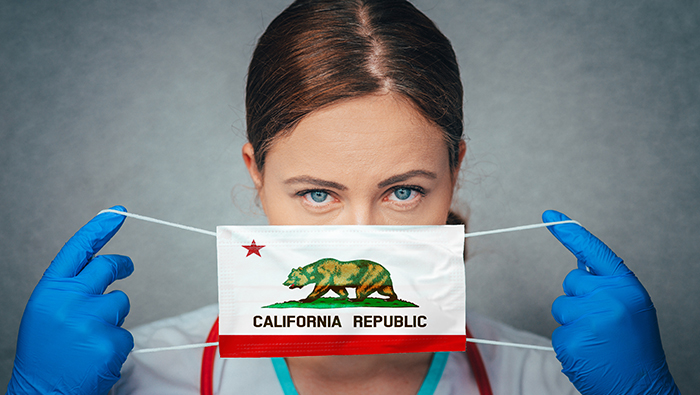In 2022, California passed several assembly bills (ABs) extending COVID supplemental paid sick leave and other pandemic-related aid to workers and obligations for employers. Notably, these assembly bills include AB 152, which covers COVID-19 supplemental paid sick leave, AB 1751 on COVID-related workers’ compensation, and AB 2693, which extends the employer’s workplace COVID exposure notification and posting requirements. Elsewhere in California family and medical leave law, the state created a new coverage category to allow “designated person” leave starting January 1st, 2023.
AB 152 – COVID-19 Supplemental Paid Sick Leave
Previously, California COVID-19 Supplemental Paid Sick Leave was set to expire on September 30th, 2022. Subsequently, AB 152 extended it through December 31st, 2022. AB 152, however, does not give additional COVID-19 Supplemental Paid Sick Leave hours to employees who have already used up their COVID-19 leave. AB 152 covers employers with 26 or more workers. Additionally, employers may request a third COVID-19 test at no cost to the worker within 24 hours of a positive second test. Previous COVID-19 Supplemental Paid Sick Leave regulations have already allowed employers to request two COVID-19 tests with positive results.
AB 152 also created the California Small Business and Nonprofit COVID-19 Relief Grant Program (the Program). The Program offers financial assistance to small businesses and nonprofits so that they may provide COVID-19 Supplemental Paid Sick Leave to workers. In order to qualify, an entity must meet the following requirements:
- currently operating;
- in operation since before June 1st, 2021;
- registered as a C corporation, S corporation, cooperative, LLC, partnership, limited partnership, or registered as a 501(c)(3), 501(c)(6), or 501(c)(19) organization; and
- employ 26 to 49 employees.
The deadline to qualify for a grant is January 1st, 2024.
AB 1751 – COVID-19-Related Workers’ Compensation
Next, AB 1751 extended the “rebuttable presumption” of COVID-19-related workers’ compensation coverage. In other words, an employer may dispute a presumption that a worker contracted COVID-19, specifically from an outbreak in the workplace. An employer may dispute such a presumption with any of the following evidence:
- the employer instituted measures to reduce COVID-19 transmission,
- an affected employee’s risk of contracting COVID-19 was not job-related,
- employee statements, or
- other evidence that disputes contracting COVID-19 in the workplace.
The extension expires on January 1st, 2024.
AB 2693 – Notification and Posting Requirements
Finally, AB 2693 extended employer requirements to notify workers of possible workplace COVID-19 exposures. This extension applies until January 1st, 2024. However, AB 2693 does not require employers to notify the local health department of such potential exposures. Employers may now also post about potential COVID-19 exposures in the worksite rather than providing written notification to individual employees. Workplace posting must include the following:
- dates of the potential exposure;
- location of the potential exposure;
- contact information for COVID-19-related benefits, including COVID-19 Supplemental Paid Sick Leave; and
- information on how to request a cleaning and disinfection plan.
Under AB 2693, employers must display worksite posting for at least 15 days and keep records of the posting dates.

